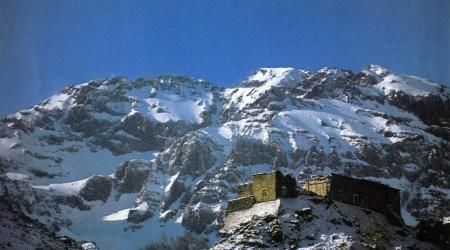DAY TREKS
Day treks do not need to be booked in advance, in fact, they are best booked the night before directly with the Kasbah when you are there.
All treks are arranged with your own personal guide and can be tailored to your own specific needs. Please note that we offer a complimentary walk, which is available for all residents.
The arrangements will be made locally and you would need to discuss the route, your expectations and your fitness levels - the walk up to the Kasbah will give you a good indication! When you are at the Kasbah, they will take this into account along with other factors like the weather. Also, you can hire an extra mule or two if you fancy riding part of the way.
It is important is to have a good pair of walking shoes or boots for longer more strenuous walks that give good ankle support. Walking boots are recommended, but many people trek the Atlas in trainers during the summer months. Ideally you should have a set of waterproofs (even in summer) and these can be borrowed from the Kasbah if required.
A half-day trek is up to 4 hours’ walking with a qualified mountain guide, either morning or afternoon, but it cannot overlap as a full day would need to be charged. Full-day treks include a substantial picnic lunch in the country and you will be accompanied by a guide and mule support to carry the lunch.
All your food, drink and bedding requirements are covered in our prices. You will be accompanied by a qualified mountain guide and have a mule and cook with you during your say. You have a private team of least 2 people.
TOUBKAL SUMMIT TREKKING PRICE
This is a private expedition with a minimum team of 2 people (guide and muleteer) and a mule to look after you. It is fully inclusive of everything you will need but you need to bring your own walking boots and ideally your own waterproofs, however, these can be borrowed if required. See full information sheet for details.

